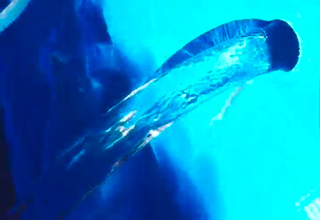
Sisyphus has nothing on this guy: meet Steve Feltham, a British man who has been searching for the Loch Ness Monster for 30 years, who told the BBC that he thought the task would have been easier.
He told BBC Radio’s Good Morning Scotland program that he thought it would be easier because he “had a sighting in the first year, and I thought it wouldn't be long until a second sighting would come along." Apparently, “ one glimpse of something like a torpedo going through the water,” was enough to set him on this lifelong path of searching for the impossible. He has not had a second glimpse of the mythical beast in the 30 years since.
@watch_the_rabbit_hole Proof That The Loch Ness Monster Really Exists #lochnessmonster #lochness #monsters #mythicalcreature #monsters ♬ original sound - The Rabbit Hole
Feltham has been recognized by the Guinness Book of World Records for “longest continuous vigil hunting for the Loch Ness Monster”, and in 2016 he was named Ambassador of the Year at the Highlands and Islands Tourism Awards.
The myth of the Loch Ness Monster is a fairly recent one, dating back to 1933 when hotel manager Aldie Mackay reported seeing a “whale-like creature.” The Inverness Courier reported on the sighting, with editor Evan Barron suggesting the creature be described as a “monster”, and the myth was born.

The fact that the myth is now 90 years old begs the question - is there one Loch Ness Monster who is either incredibly old or immortal, or do they breed? As one Redditor points out, “Assuming it's not immortal, you aren't looking for a Nessie, you're looking for any one of the breeding population of Nessies. I'm not a biologist so I don't know exactly how many creatures you'd need for a viable, genetically diverse breeding population, but I'd guess it’s at least double figures. If there are 10 Loch Ness monsters I'd expect more than 2 photos of them by now. And the two famous pictures are both faked.”
Not directly related but a reminder that one of the longest serving Loch Ness Monster hunters looks exactly as you'd imagine he'd look (that being very cool) https://t.co/tW11yC1Wm8 pic.twitter.com/yT50qvE2zi
— Cameron Archibald (@MammothWhale) May 12, 2023
Perhaps Nessie faithfuls will point to her fellow sea creatures, clams, in response to these concerns. Rougheye rockfish can live up to 200 years, as can bowhead whales, while one Greenland shark set the record for oldest vertebrate animal by living to 400.






0 Comments